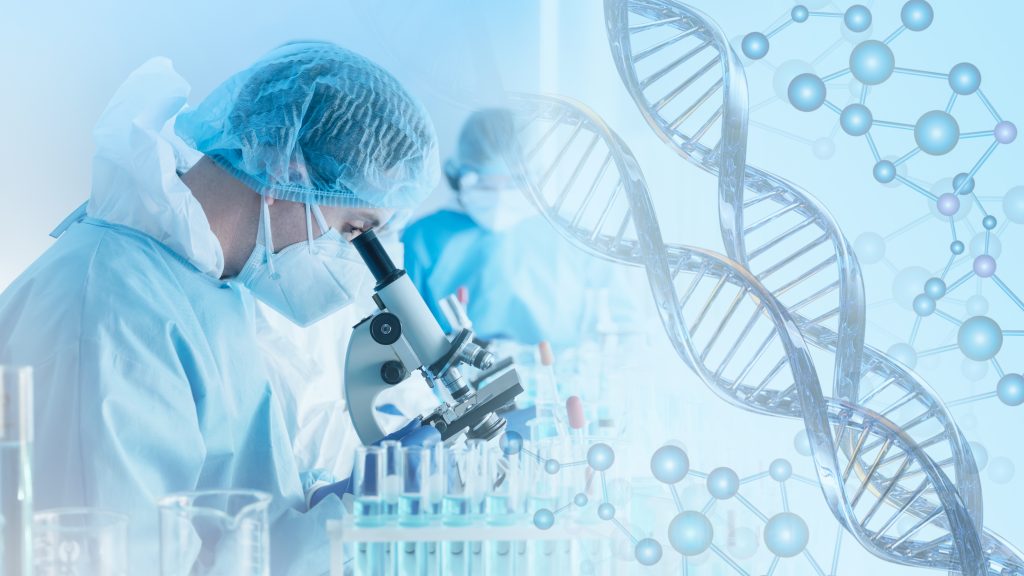In the rapidly evolving world of cancer care, one topic is getting more attention than ever: AI and cancer drugs. Artificial intelligence is changing the way scientists discover and develop treatments, making it possible to create therapies that are more targeted and effective than traditional chemotherapy or even many of today’s advanced drugs.
At the Cancer Center for Healing in Irvine, CA, we focus on integrative oncology, combining conventional medicine with holistic therapies to support the whole patient. As we look toward the future, understanding the connection between AI and cancer drugs is essential for improving treatment outcomes and quality of life.
How AI is Changing Drug Discovery
The development of new cancer treatments is often slow and expensive, taking years or sometimes decades to move from the laboratory to the patient. This is where the relationship between AI and cancer drugs becomes transformative. AI algorithms can analyze massive datasets, including genetic information, tumor profiles, and previous drug trial results, to predict which compounds are most likely to work against specific cancer types.
Instead of testing thousands of possibilities blindly, AI can narrow the focus to a smaller pool of highly promising drug candidates. This speeds up the process, reduces costs, and increases the chances of finding effective, targeted treatments.
Recent Breakthroughs with AI and Cancer Drugs
When it comes to recent success stories, AI and cancer drugs have already made impressive strides. Here are a few examples making headlines:
1. AI-Discovered Lung Cancer Drug Candidate
Earlier this year, researchers announced that an AI system identified a new molecule showing strong potential against non-small cell lung cancer. In just months, the AI screened billions of chemical compounds and pinpointed those most likely to inhibit a specific cancer-driving protein. This pace is unprecedented in traditional drug discovery and highlights why AI and cancer drugs are a perfect match for speeding innovation.
2. AI and Rare Cancer Therapies
For rare cancers, traditional research methods often fail because patient populations are small, making clinical trials difficult. Recently, AI identified an existing drug, originally developed for another condition, that could be repurposed for a rare pediatric cancer. This example demonstrates how AI and cancer drugs can bring hope to patients who previously had few treatment options.
3. Precision Medicine in Breast Cancer
In breast cancer research, AI is being used to match patients with the drug most likely to target their specific tumor subtype. By analyzing genetic mutations and protein expressions, AI is helping oncologists select therapies that act directly on cancer cells, sparing healthy tissue and reducing side effects. The ability of AI and cancer drugs to personalize care is one of the most promising aspects of this technology.
Why Targeted Therapies Are Better Than Traditional Chemo
Traditional chemotherapy works by killing rapidly dividing cells, which includes not only cancer cells but also many healthy cells. This is why patients experience side effects such as hair loss, fatigue, and immune suppression.
The collaboration between AI and cancer drugs allows researchers to develop targeted therapies that work more precisely. These drugs are designed to interfere with cancer cell growth while leaving normal cells relatively unharmed. The result is fewer side effects, improved quality of life, and, in many cases, better survival rates.
How AI Identifies New Drug Targets
One of the most exciting aspects of AI and cancer drugs is the way AI can uncover entirely new drug targets, proteins, or genetic mutations that play a critical role in cancer growth. By analyzing thousands of tumor samples, AI can identify patterns that human researchers might miss, opening the door to novel treatments.
This ability to uncover hidden opportunities in data means that the next breakthrough cancer drug could be discovered in a fraction of the time it would have taken a decade ago.
The Role of AI in Integrative Oncology
At the Cancer Center for Healing, we view AI and cancer drugs as part of a larger shift toward precision medicine. While targeted therapies discovered through AI are a powerful tool, they work best when combined with a whole-person approach, addressing nutrition, lifestyle, emotional health, and immune support.
Integrative oncology embraces both cutting-edge technology and holistic therapies, ensuring that patients receive treatments that are not only effective against the disease but also supportive of their overall well-being.
The Future of AI and Cancer Drugs
Looking ahead, the relationship between AI and cancer drugs is expected to grow stronger. We may soon see AI systems capable of predicting how a tumor will evolve over time, allowing researchers to develop drugs that stay one step ahead of the disease. AI might also help create combination therapies that target multiple cancer pathways at once, making it harder for tumors to develop resistance.
Pharmaceutical companies, academic researchers, and integrative cancer centers are already collaborating to harness AI’s full potential. This is not just about faster drug discovery; it’s about smarter, more compassionate cancer care.
What This Means for Patients Today
While many AI-discovered cancer drugs are still in development, some have already reached clinical trials, and others are in use after AI-guided refinement. Patients who are part of these trials are gaining access to therapies that might not have been possible without AI’s help.
At the Cancer Center for Healing, we stay informed on developments in AI and cancer drugs so we can help our patients explore all available treatment options, including those that may offer better outcomes with fewer side effects.
Partner with the Cancer Center for Healing
The partnership between AI and cancer drugs represents one of the most exciting advancements in modern oncology. By speeding up drug discovery, uncovering new treatment targets, and creating therapies that are more precise than traditional chemotherapy, AI is giving patients more hope than ever before.
For those navigating a cancer diagnosis, knowing that researchers are harnessing AI to create more targeted and effective drugs is a powerful reminder that the future of cancer care is quickly evolving.
To learn more about how the Cancer Center for Healing integrates advanced technologies such as AI into our holistic cancer care approach, visit our page on integrative oncology and AI.


















